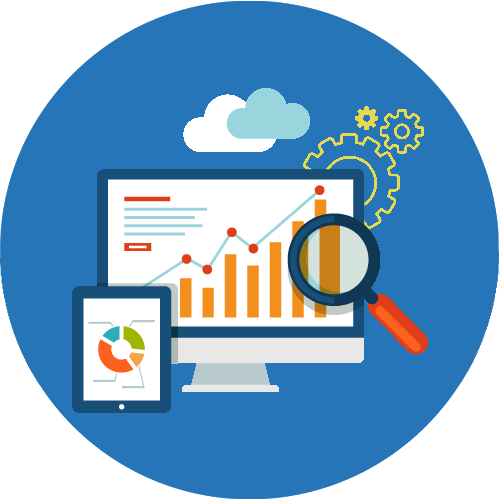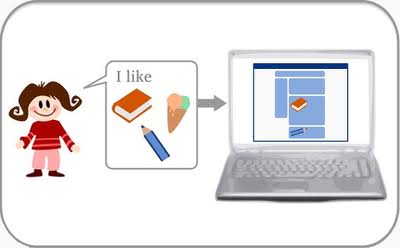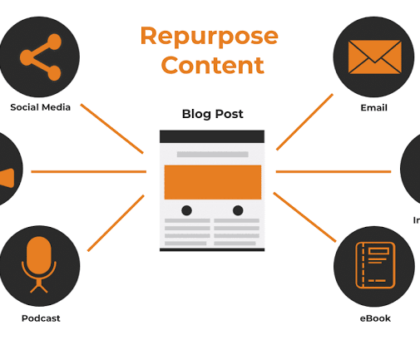
Analytics + Content = Magic: Unleashing Data-Driven Content For Success
Unlock the power of data-driven content to enhance your content strategy. Discover how to leverage data analytics for optimised content marketing and better audience engagement.
Table of Contents
- Turn Numbers into Narratives: The Power of Data-Driven Content
- What is Data-Driven Content?
- How Data-Driven Content Improves Content Strategy
- Key Tools for Data Analytics in Content Marketing
- Measuring Content Performance with Data
- Make the Smart Shift: Embrace Data-Driven Content or Fall Behind
Turn Numbers Into Narratives: The Power Of Data-Driven Content

In the fast-paced world of digital marketing, relying solely on intuition or guesswork can lead to missed opportunities. Enter data-driven content – a strategy that empowers marketers to base their decisions on factual insights. By leveraging data analytics, you can tailor your content marketing efforts to meet your audience’s needs more effectively, boosting engagement, conversions, and brand loyalty.
In this blog, we’ll explore the importance of data in crafting a successful content strategy and how you can leverage data analytics to drive better results.
What Is Data-Driven Content?
Data-driven content refers to the practice of using data analytics to inform content creation, distribution, and optimisation. Instead of creating content based on assumptions or trends, marketers harness data insights to understand their audience’s preferences, behaviors, and needs. This approach ensures that your content is not only relevant but also strategically aligned with your audience’s interests and pain points.
With tools like Google Analytics, social media insights, and audience behavior tracking, you can gain valuable data that helps shape your content strategy. By consistently analysing this data, you can adjust and improve your content, ensuring it resonates with your audience and performs at its best.
How Data-Driven Content Improves Content Strategy
Adopting a data-driven content strategy offers several advantages for marketers, enabling them to optimise every step of the content creation process. Here’s how data analytics transforms content strategy:
1. Audience Insights for Tailored Content
One of the biggest benefits of data-driven content is the ability to understand your audience deeply. Analytics tools allow you to track behaviors like page visits, time spent on specific posts, and engagement metrics. These insights help you create content that speaks directly to your target audience’s interests, resulting in more meaningful interactions.
2. Improved Content Relevance
Content marketing can be hit or miss without proper insights. By leveraging data, you can ensure your content is relevant to your audience at any given moment. Data analytics helps you uncover trending topics, keywords, and questions your audience is searching for, allowing you to craft more relevant and engaging pieces.
3. Content Optimisation
As content performance fluctuates, it’s crucial to keep optimising. With data, you can pinpoint which pieces of content are performing well and which aren’t. This allows you to update underperforming content or repurpose successful content for different platforms. By continuously monitoring and adjusting, you ensure your content remains fresh and effective.
4. Data for Better Decision-Making
Data-driven content empowers marketers to make informed decisions instead of relying on guesswork. Whether it’s choosing which topics to cover, what format to use, or when to post, data can guide every decision, helping you avoid costly mistakes and improving the overall efficiency of your content strategy.
Key Tools For Data Analytics In Content Marketing
When it comes to integrating data analytics into your content strategy, the right tools can make all the difference. Here are some key tools to help you monitor, analyse, and optimise your content marketing efforts:
- Google Analytics
Google Analytics is a must-have tool for tracking website traffic, engagement metrics, and user behavior. By analysing data on which pages or blog posts get the most views, you can identify content that resonates with your audience and replicate it. - Social Media Insights
Platforms like Facebook, Instagram, and Twitter provide in-depth analytics on audience engagement. Understanding which posts are generating the most likes, shares, and comments will guide you in creating more of the content that your followers love. - Content Management Systems (CMS) Analytics
Many CMS platforms like WordPress offer built-in analytics tools that track user behavior and engagement with your content. These insights help you fine-tune your posts for maximum impact. - A/B Testing Tools
A/B testing allows you to compare two versions of content to see which one performs better. Using these tools, you can optimise your content based on data-driven insights, resulting in better user experience and higher engagement.
Measuring Content Performance With Data
To truly make the most of data-driven content, measuring the performance of your content is essential. With data analytics, you can track a variety of key performance indicators (KPIs) that directly reflect how well your content is performing.
Key Metrics to Track:
- Traffic: How many people are visiting your content?
- Engagement: Are your readers interacting with your content (likes, shares, comments)?
- Conversion Rate: Is your content driving users to take a specific action, like subscribing or purchasing?
- Bounce Rate: Are visitors staying on your page, or are they leaving quickly?
- Time on Page: How long are visitors spending on your content?
By consistently monitoring these metrics, you can adjust your content strategy based on performance data. This iterative approach ensures that your content marketing efforts are always evolving and improving.
Make The Smart Shift: Embrace Data-Driven Content Or Fall Behind
In conclusion, adopting a data-driven content strategy is the key to staying competitive in today’s digital marketing landscape. By leveraging data analytics, you can craft content that is relevant, optimised, and tailored to your audience’s needs. Whether it’s improving engagement, increasing conversions, or driving traffic, data-driven content empowers you to make smarter, more informed decisions.
Start integrating data analytics into your content strategy today. Use the insights to guide your decisions, and watch your content marketing efforts soar.





